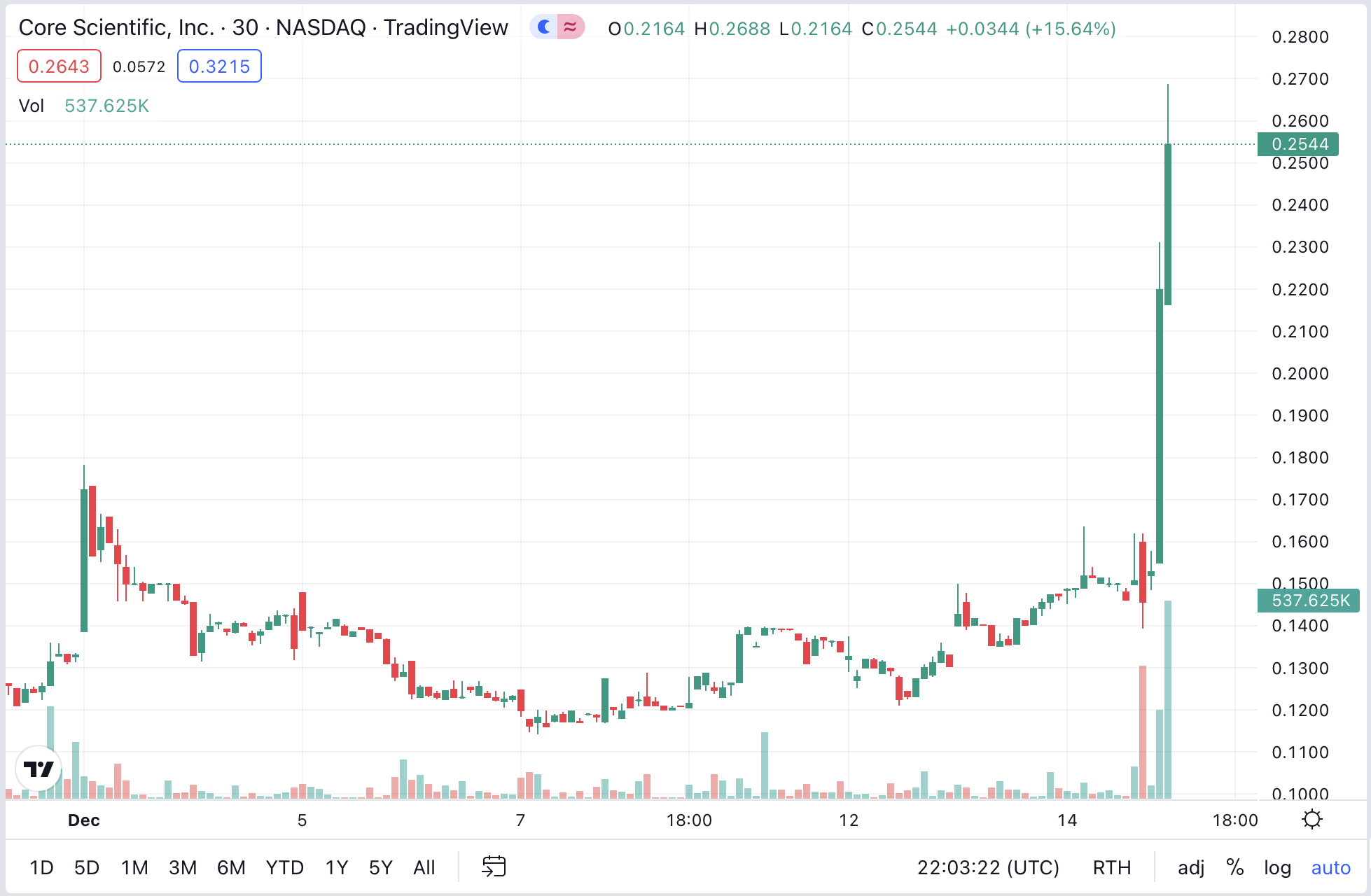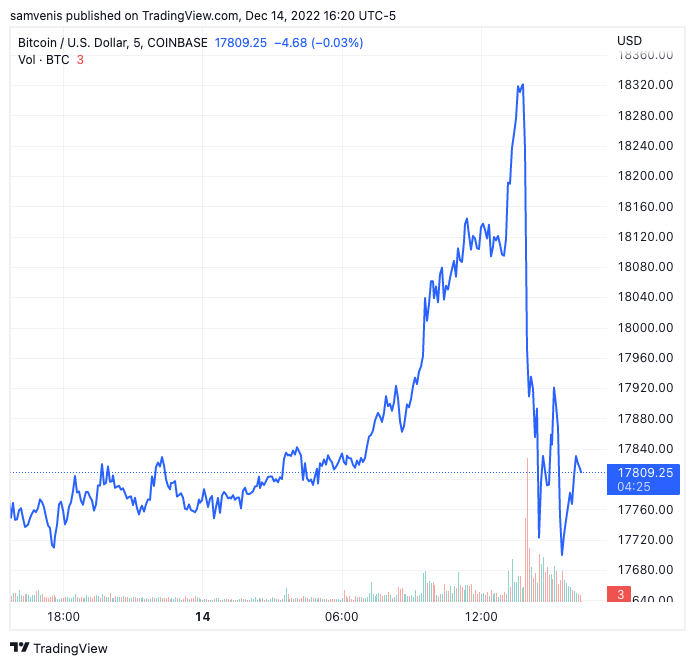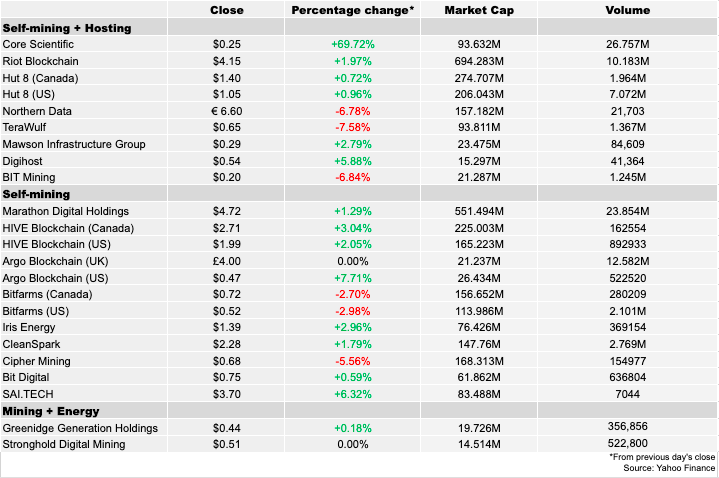Senate lawmakers are taking a closer look at Binance in the wake of FTX’s collapse, with a hearing today frequently touching on the off-shore exchange while senators also expressed broader concerns around the whole digital asset industry.
Money laundering concerns, consequences of greater exposure to the broader financial sector, and Binance’s role in its rival’s failure all came up during the hearing, which featured an unusual mix of celebrity and expert witnesses.
“You think about a similar implosion by Binance, that would really prove catastrophic,” said Sen. Bill Hagerty, R-Tenn. “It would prove catastrophic to the cryptocurrency industry, and prove catastrophic to all of the consumers that utilize the industry,” continued the Tennessee Republican, who also pointed out possible links between Binance and the Chinese government, which a spokesperson for Binance denied.
Other senators, and multiple witnesses, echoed Hagerty’s concern.
“I’m going to echo some of the concerns my friend from Tennessee just echoed about Binance,” said Sen. Mark Warner, D-Va., adding that he also found China’s complete ban of digital assets “curious.”
In a statement to The Block, a Binance spokesperson denied any connection to China.
“Binance is not a Chinese company — nor is it even conducting business in China,” the spokesperson told The Block.
“Regardless of whether Binance itself is connected with the Chinese Communist Party, which Binance denies, but regardless of whether that’s the case, by having a system in the United States that’s unclear, that’s regulatorily hostile, we could go so far as banning cryptocurrency in the United States,” argued Jennifer Schulp, director of financial regulation studies at the Cato Institute’s Center for Monetary and Financial Alternatives, another of the witnesses at Wednesday’s hearing. “We would be losing the position of having the possibility to maintain American dominance for these technological innovations.”
Investor, “Shark Tank” star and paid FTX spokesperson Kevin O’Leary also turned the spotlight on Binance. “Maybe there’s nothing wrong with love and war, but Binance is a massive unregulated global monopoly now,” said O’Leary, who acknowledged in his opening statement that he received $18 million to endorse FTX.
O’Leary elaborated that Bankman-Fried, who was indicted on multiple fraud charges and denied bail in the Bahamas yesterday, told him personally that his firm’s financial insolvency stemmed from buying out Binance chief Changpeng ‘CZ’ Zhao, though prosecutor accounts of the firm’s operations made in indicting documents, as well as testimony yesterday from new FTX CEO John Ray III, may cast doubt on that anecdote. The celebrity investor also told senators that Bankman-Fried said he was under pressure to buy back FTX shares from the Binance boss because Zhao would not comply with regulatory requests in some jurisdictions and prevented FTX from acquiring licenses to operate.
“These two behemoths that own the unregulated market together, and grew these incredible businesses in terms of growth, were at war with each other. And one put the other out of business intentionally,” O’Leary said.
FTX’s collapse started with a story by CoinDesk that questioned the strength of Alameda Research’s balance sheet. That prompted Binance CEO Changpeng Zhao to say in early November that he would sell a large position of FTX’s native token, which sent the price into freefall. Binance briefly considered buying FTX but quickly pulled out of the deal. The exchange and its related entities filed for bankruptcy protection days later. Still, lawmakers in both parties sounded the alarm around Binance.
“U.S. regulators are limited in the extent to which they can mandate appropriate audits or appropriate disclosure of Binance’s operations,” Hagerty said. “Binance operates outside of our system.”
Sen. Elizabeth Warren, D-Mass., noted money laundering investigations around the firm and introduced a bipartisan bill this morning that would tighten reporting requirements for offshore digital asset accounts.
Actor and author Ben McKenzie Schenkkan – “Ryan from the O.C.,” as he jokingly referred to himself – and American University Washington College of Law Professor Hilary Allen also testified and reiterated their public skepticism around digital assets.
Disclaimer: Beginning in 2021, Michael McCaffrey, the former CEO and majority owner of The Block, took a series of loans from founder and former FTX and Alameda CEO Sam Bankman-Fried. McCaffrey resigned from the company in December 2022 after failing to disclose those transactions.
© 2022 The Block Crypto, Inc. All Rights Reserved. This article is provided for informational purposes only. It is not offered or intended to be used as legal, tax, investment, financial, or other advice.



